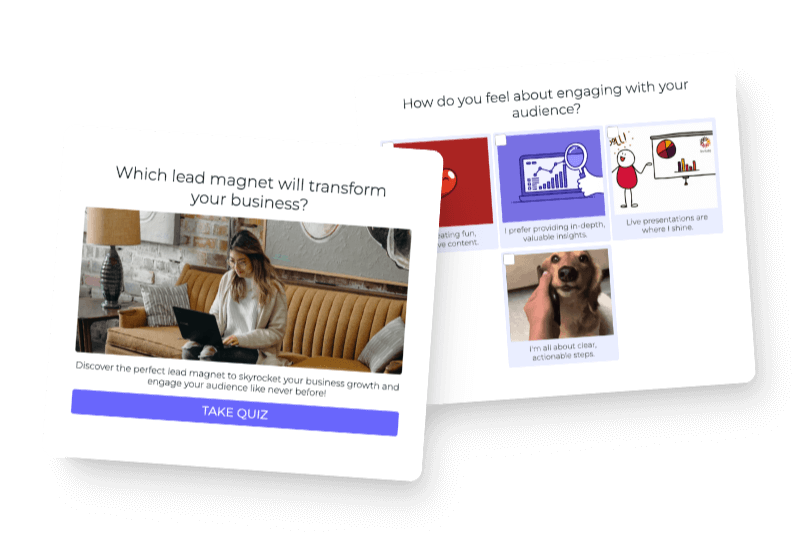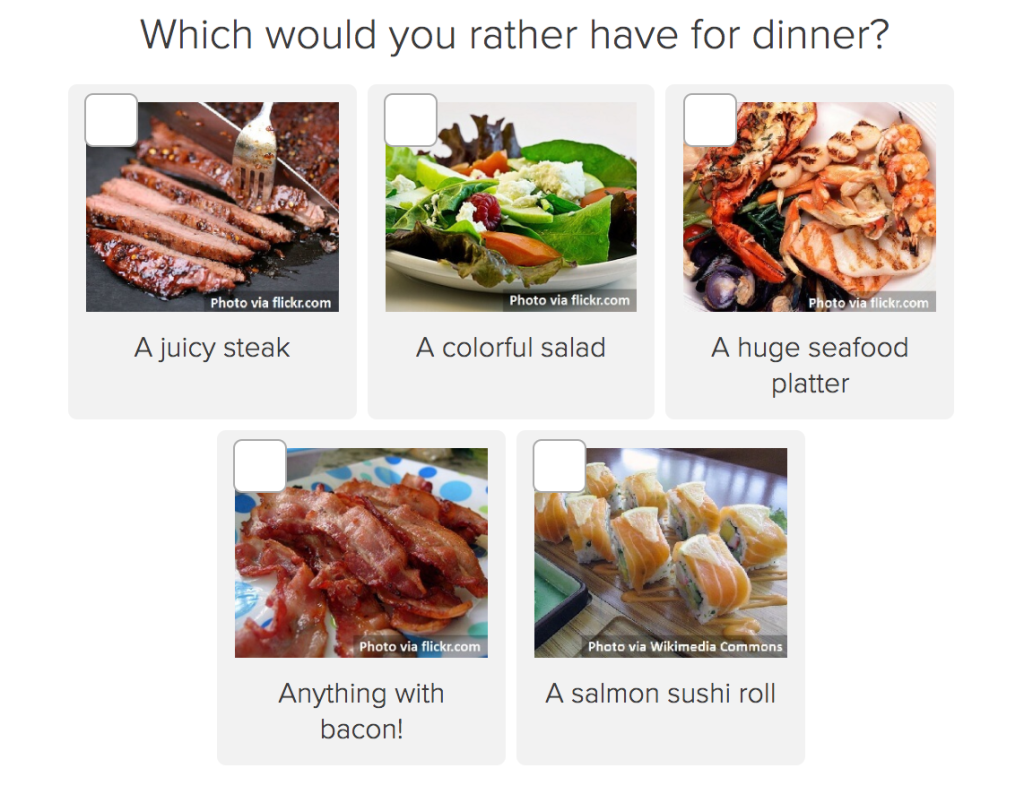We have analytics on our quiz builder usage, and the overwhelming majority of the time (48%) is spent creating quiz questions. Our customers take great pride in writing excellent quiz questions and have done everything from consulting an agency to having a happy hour specifically dedicated to creative question writing in order to come up with the very best questions for their quizzes.
As an insider at Interact, I have a unique vantage point for giving advice on creating questions because I’ve seen more quizzes than anyone on earth (pretty sure that’s a fact), and I’ve also got data from more than 35,000 quizzes created within our platform, so I can pinpoint specific words and phrasing that are known to make your quiz questions get you more email subscribers, shares, and sales.
I’m going to go through this in chronological order, meaning that I’ll walk you through my method for writing quiz questions that is derived from a mix of data and real-world experiences.
Step 1: Create the outcomes of your quiz
Maybe it seems counter-intuitive to start at the end when creating quiz questions, but it’s actually by far the easiest way to get started and make your question creation easier. So for example, if you’re doing a “What Kind of Animal are You?” quiz you’d start with determining which animals will be in your quiz outcomes. For this demonstration I’m going to go with Cheetah, Tiger, Llama, and Deer
Step 2: Write questions for one person in your target demographic that help you build a path to your quiz outcomes
The most important part of this is to focus on one person. One of the easiest traps to fall into is trying to write questions that will appeal to everyone, that is a sure-fire way to fail. You can’t write questions for everyone, nor should you want to. A quiz is only taken by one person at a time, so write questions for one person.
Step 3: Write answer options for one person in your target demographic that connect to your outcomes
When you are trying to come up with possible answers for your questions, you should think of one answer choice for each of your possible quiz outcomes. So for example if we go with the same quiz concept of “Which Animal are You?” and your question is “What’s your work style?” your answer choices can be “Work as fast as possible” for the cheetah, “Find the most sly way to get my work done” for the tiger, “Slow and steady wins the race” for the Llama, and “Get my work done without anyone noticing” for the Deer. Each of those answer choices connects up (to some degree) with the possible outcomes you have.
How to get in the right mindset for writing quiz questions
1. Write to one person. I know I’ve mentioned this three times now, but it’s so important. If you write quiz questions as if you were sitting across from a friend and asking them then your quiz will do well. If you ask them as if you are polling an entire crowd the questions will come across as insincere and won’t work well.
2. The Tipsy Rule. So you know how when you get tipsy you ask questions that are a little more blunt? (if you don’t drink then imagine how you’d ask questions right after a run or when you’re on vacation, or any other time you “take the edge off”) When you write quiz questions you should word them in a very direct way, people enjoy answering personal questions and if you use too much technical jargon that advantage will be lost. For example, instead of “What’s your favorite food?” ask “You have one more meal before an asteroid hits the earth, what are you going to eat?”
3. Put things in plain english. Using overly fancy words or academic language will make people think they are taking a quiz in school, which no one likes. Write questions in a very informal tone for best results.
Logistics for quiz questions
1. 7 questions. We’ve analyzed all of our quizzes and found that 7 questions is the optimal amount because it takes about 2 minutes to answer 7 questions which is the optimal amount to get people engaged with your quiz, but not so long that they’ll get bored and leave.
2. Ideally one answer choice per quiz outcome. As we discussed above, quizzes work best when you can have one answer choice per quiz outcome (for personality quizzes), so that you can connect everything up easily.

